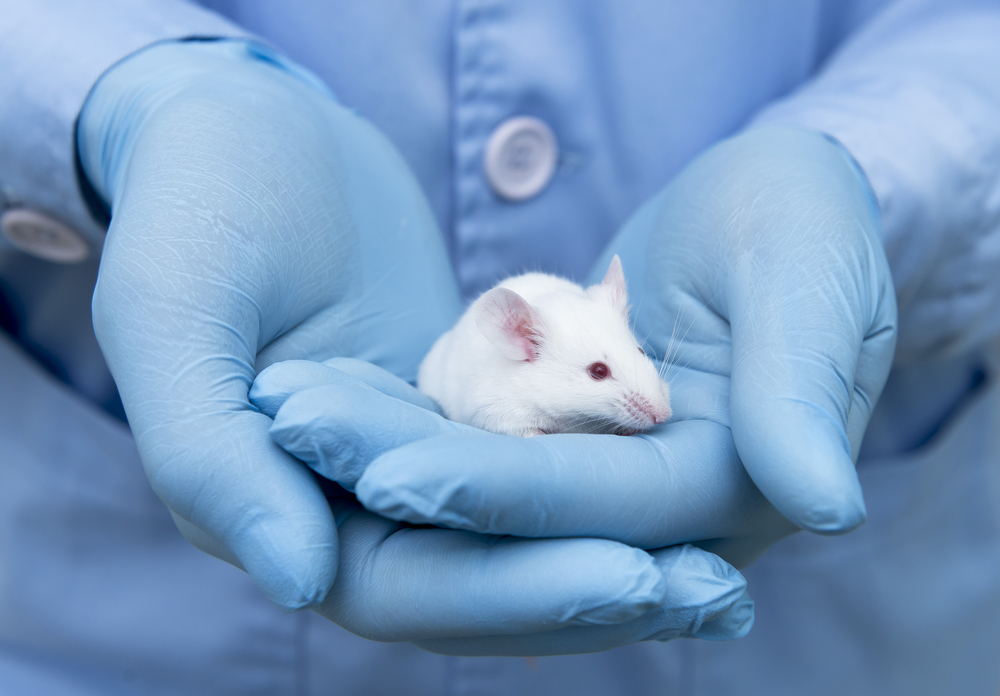Typhoid Vaccine Treats MS by Promoting Regulatory T-cells, Mouse Study Reports
Written by |

Treating a common animal model of multiple sclerosis (MS) with a typhoid vaccine eased disease symptoms by prompting T helper cells to stop production of a pro-inflammatory factor — interleukin (IL)-17 — and by promoting greater numbers of anti-inflammatory regulatory T-cells, researchers report.
Their study, “Targeting prohibitins at the cell surface prevents Th17-mediated autoimmunity,” was published in The EMBO Journal.
Considerable attention is being given to T helper (Th) 17 cells due to their established role in autoimmune disorders, including MS.
Th17 cells, primarily recognized by their ability to produce IL-17, are known to be pro-inflammatory and to be major players in the myelin loss that is a hallmark of MS.
Researchers at the Medical Center of Johannes Gutenberg University Mainz (JGU) took a closer look at proteins found at the surface of Th17 cells.
They found significantly higher-than-usual levels of two proteins, prohibitin 1 and prohibitin 2, in Th17 cells.
These unusual prohibitin protein levels at the Th17 cell’s surface also contributed to the hyperactivation of the CRAF kinase, a key member of the signaling pathway — called Ras/Raf/MAPK pathway — that regulates processes such as cell proliferation and survival.
Several members of this pathway, when deregulated, help promote the proliferation of tumor cells.
“The increased surface expression of prohibitin 1 and 2 was associated with a similarly elevated activity of the MAP kinase CRAF and downstream MAP-kinase signal transduction. We were not only able to observe this in healthy individuals but also in Th17 cells of patients suffering from MS,” Professor Frauke Zipp, director of the department of neurology at the Mainz University Medical Center and co-lead study author, said in a press release.
Researchers then asked whether they could disturb the interaction between prohibitin and CRAF.
They used Vi polysaccharide, a vaccine approved by the World Health Organization (WHO) to treat typhoid fever that has been shown to interact directly with prohibitin 1 and 2 complexes at a cell’s surface.
Results showed that treating Th17 cells with the typhoid vaccine blocked the CRAF-MAPK pathway and lowered IL-17 levels.
Researchers then tested the vaccine in an established mouse model of MS, known as experimental autoimmune encephalomyelitis (EAE) mice.
Treatment with the typhoid vaccine eased MS symptoms in the mice and, when researchers analyzed the animal’s central nervous system (brain and spinal cord) at the peak of the disease, they realized it also led to an increase in the number of regulatory T-cells (known as Tregs), specifically those expressing a factor called Foxp3, previously shown to protect against EAE.
Tregs are a group of T-cells known to maintain order in the immune system and prevent autoimmune diseases.
“Further investigations using this disease model allowed us to show that the number of anti-inflammatory regulatory T-cells increased and, as a result, the severity of MS was significantly alleviated,” said Krishnaraj Rajalingam, the study’s co-lead author and head of the cell biology unit at the Mainz University Medical Center.
“Developing novel kinase inhibitors that target protein-protein interactions are of special interest especially in treating immune disorders. Our next goal is to apply these findings to other autoimmune diseases such as rheumatoid arthritis,” added Rajalingam, who is also a fellow of the JGU Gutenberg Research College.
Kinase inhibitors are in clinical use as therapies for cancer and autoimmune diseases, further supporting these new findings.
“Our observations suggest a pivotal role for the PHB‐CRAF‐MAPK signalling axis in regulating the polarization and pathogenicity of Th17 cells and unveil druggable targets in autoimmune disorders such as MS,” the study concluded.


